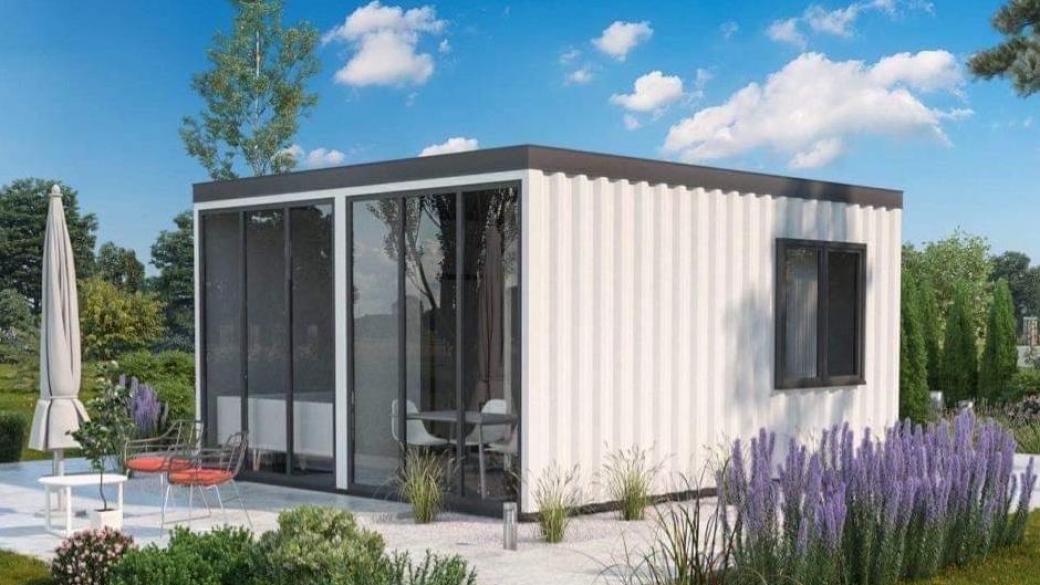Container houses: Do they have a future in Bulgaria?
There are already several ready projects in Bulgaria, but the planned container hotel is delayed for now

© ECONOMIC.BG / Hybrid Homes
The quality and control of the construction process in both Bulgaria and Turkey was discussed on the very first day after the devastating earthquakes in our southern neighbour. Undoubtedly, the quality of construction must be revised and its control must be emphasised. But would it have been possible, in an earthquake of this magnitude, to avoid the consequences? That, unfortunately, is a question that is unlikely ever to be answered.
But we can think of ways of addressing the problem. Is it possible that ocean container houses are one of the best solutions for building in highly seismic zones? Is this the future in the development of the sector? And also, what major projects of this type are being developed in Bulgaria? Economic.bg sought answers to these questions from experts.
The advantages of a container house
Among the biggest advantages of container houses, according to Zvezdelin Minchev, co-founder of Hybrid Homes, a company that deals with construction with shipping containers, is precisely the lack of harmful impact on the land. "Whereas a standard house requires digging into the ground and pouring concrete, these houses use earth anchors to secure them. This allows us to position them on any terrain, and if one day the house is removed, there will be no footprint on the land, which is very important when we talk about ecology," he says.
Zvezdelin also claims that the containers are not destroyed by earthquakes under any conditions.
This is also the opinion of Eng. Marin Gergov, who is a structural engineer, planner and consultant, as well as chairman of the board of the Chamber of Engineers in Investment Design (CIIP). He agrees with Minchev's statement, but on the condition that the containers are placed only in a single row.
"By their very nature, containers are automatically earthquake-proof if they are only one row high — not one on top of the other."
In the words of Eng. Gergov, to make such a container usable, improvements are made that compromise its strength. But still, if the containers are used in a single row, that is, alone for single-family homes, they are "earthquake-proof." However, if large or tall buildings are made of them, then additional bracing is needed. "In the container ships, the containers are lined up to seven rows high, but then they fit into special rails that hold them so they don't swing sideways. There would have to be some kind of additional structure when constructing such buildings," says Eng. Gergov.
"In addition to being earthquake-proof, ocean containers also withstand fire," says Zvezdelin Minchev. "The containers are made of special steel that does not rust in the water. Inside, they are treated with fire-retardant paint so that when there is no air inside, even if a fire occurs, it is extinguished because there is nowhere to suck oxygen from."
Other advantages of this type of building include the speed of construction, as well as the cost, which Minchev says is much better than buying or building a traditional house.
What are the problems?
Despite the many advantages of container homes, they also have their disadvantages. According to Eng. Ognyan Atanasov, who is a heating engineer and deputy chairman of KIIP, the biggest problem is moisture. It forms in the core of the structure, which is most often made of polyurethane and stone wool. And since the panel is a sheet of metal, the moisture that forms has no way to escape through it.
"If it's for seasonal use, it's a good option, but for year-round use, I don't think so," says Eng. Atanasov.
He says that in general, from a technical point of view, the containers have better characteristics, but everything is strictly individual, because in appearance they are great, but when you look in detail, there are many questions to ask.
"It's a good way to build, but I don't think it's the future," says Eng. Gergov.
However, he believes that using ocean containers is a good option for green building and a way to extend the life of these structures before they are recycled. They are also suitable as a temporary measure after natural disasters because they are resistant to almost all cataclysms.
Container buildings in Bulgaria
There are already several completed shipping container building projects in Sofia. One of them is the housing block in Krasna Polyana, which has already housed people from the so-called Vietnamese hostels. Hybrid Homes has also built a children's dormitory at the sports school in the Svoboda district, and several establishments in the municipality are also made of containers.
The first hotel made of containers in the capital was also expected to be built in Lyulin. For the moment, however, it is still at the preparatory stage, as there are administrative obstacles on the part of the investor, Zlatin Minchev specifies.
The newest project in Bulgaria, which is already at the design stage, is the Pelina dam. The idea is to build an entire village for digital nomads there. There are also two finished projects for student dormitories, but there are no investors for their realisation yet. Negotiations have been held with the rectors of the universities in Varna and Pernik.

 Gabriela Mahlelieva
Gabriela Mahlelieva 